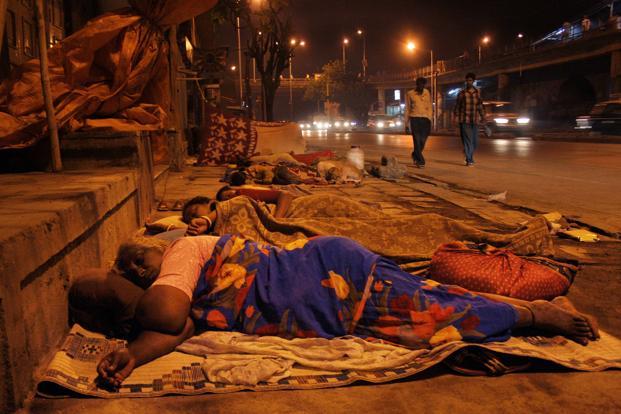Two Years Of PM Modi: Distress In India's Economy

NEW DELHI: The economy of a country, particularly so of one like India which stands at a threshold of change since its post-IMF reformation, is a great cause of concern. This is because beyond its complex detailing, the state of a nation’s economy affects its citizens in very real ways. The third event of the Idea of India Conclave 2016 sought to assess the state of the Indian economy, and thus of the nation, in two years of the Modi sarkaar. The panel comprised Professor Deepak Nayyar as chairperson, and eminent economists Prabhat Patnaik and Atul Sood as speakers.
In his incisive analysis of two years of Prime Minister Narendra Modi’s government, Professor Prabhat Patnaik illustrated elements of continuity and change. He argued that while the government’s policies have been a continuation of the neoliberal economic policy pioneered by Manmohan Singh’s government, the present government does not have its predecessor’s diversity of voices, and is consequently emblematic of a hardened neoliberal viewpoint.
Patnaik placed this policy inclination in the decline in welfare programmes, such as the Mahatma Gandhi National Rural Employment Guarantee Act (MGNERGA), as well as in an increasing centralisation of economic resources marked further by declining state-sponsored, albeit populist, welfare schemes. The Indian state, Patnaik argued, is steadily becoming a corporatist oligarchy. This is evidenced in serious consideration of illegitimate corporate legislative demands, such as the Land Acquisition Act, and the Goods and Services Tax Bill (GST). After all, the government’s proclaimed accomplishment, Make in India, is essentially the provision of goodies and freebies to foreign and domestic corporations to boost investment.
Concomitant to neoliberalism’s stealth revolution is what Patnaik calls the capitalist crisis. With its onset in 2007-08, there has been a recession, an overall rise in poverty, industrial stagnation, depreciating currency, and declining agricultural production. The imagination to combat this crisis seems to be largely absent. As Professor Patnaik declared, ‘The period of neoliberal globalisation seems to have run its course.’
Linking the economic with the political, Professor Atul Sood emphasised the jugalbandi between the cultural and the corporatist narratives. The battle against this sarkaar, he argued, will be extremely difficult if we lose sight of any of its narratives. To challenge the crisis in the economy, we need to challenge its politics. Professor Sood refuted the idyllic picture of its performance being painted by the government, highlighting the bleakness of even aggregate economic indicators. T
There has not been any significant progress in Foreign Direct Investment (FDI), as well as in domestic investment. The core policy framework – ease of doing business, brought about through initiatives such as Skill India, Make in India, and such, is extremely problematic. The larger narrative of Make in India, Professor Sood argued, will only lead to an erosion of autonomy. We cannot, he concluded, keep corporatizing everything.
When we speak of distress, what and whom are we speaking of? Professor Deepak Nayyar sought to unravel this challenging question. He emphasised that it is rural India, the poor, and the destitute that we must speak of, and it is they who are in ‘distress’ under the neoliberal government concerned not with the priorities of its people, but of the corporates.
Nayyar charted his argument as an outline of the many crises of India – jobless growth, rising inequality, persistently increasing poverty, as well as the silent crises of agriculture, infrastructure, and industrialisation. As he phrased it, ‘India is not a land of a million mutinies; it is a land of a million crises.’
While there has been much populism on schemes such as the Jana Dhana Yojana, Skill India, and Make in India, there is very little that the government has to show for substance and long-term vision. With his experience as a former chief minister, Narendra Modi is still dealing in microcosms: next election, next year, and such. As Nayyar finally phrased it, it is not the cost of what we do, but the cost of what we do not do.


